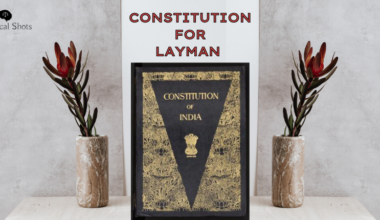When you pay for something, you want quality, you want worth of your money, and what you do not seek are the defects or unfair practices. All you want is fairplay for what you sought for the money you paid. For such a scenario, there are laws for protection of consumer rights. Here, we are explaining what the Consumer Protection Act, 2019 lays and how it helps protect the rights of consumers in India. Though this is not first of its kind in terms of a statute addressing consumer affairs, it particularly targets the developments in terms of e-commerce and advancing commercial practices in India. Hence, Let’s Get Started!
About Consumer Protection Act
The Consumer Protection Act, 1986 was the first legal statute in India which revolved around the rights of consumers in India. However, there were some gaps in the original legislation and with the advent of e-commerce, consumers were not so protected. This resulted in the Consumer Protection Act, 1986 being replaced by the updated statute in 2019. The Consumer Protection Act, 2019 came into force on July 20, 2019. The same aims at setting up a better infrastructure for the globalised status of consumers with the technological advancements and increase in distant transactions.
Who is a Consumer as per the 2019 Act?
Section 2(7) of the Consumer Protection Act, 2019 defines the term “consumer”. It broadly states that a consumer is any person who buys any goods for a consideration or hires/avails any service for a consideration. However, a person who obtains such goods or services for commercial or resale purposes is excluded from protection under the Consumer Protection Act, 2019. In other words, self consumption by a person is what is protected under the Act.
Such goods or services may be availed by a local shop, online commerce platforms, teleshopping or even multi-level marketing.
Six Rights under Consumer Protection Act
There are six rights enjoyed by a consumer in India as per the 2019 Act. The same have been explained below:
- Right to Protection
A consumer has a right to be protected against goods and services which are hazardous to life and property.
- Right to be Informed
Consumers enjoy the right to information regarding quality, quantity, price, purity standards, etc. pertaining to the goods or services so paid for.
- Right to Choose
Competition in a market helps consumers to avail things at a lower price. Here, a consumer gets the right to variety at competitive prices so as to avail better goods or services, avoiding any monopoly.
- Right to be heard
The Consumer Protection Act ensures that the consumers are heard for their grievances. It provides for the procedure regarding consumer complaints, which consumers can easily access in case of need.
- Redressal against unfair trade practices
Only providing rights to consumers is not enough unless there is someone to hear the grievances and provide remedy for the distress of consumers. Thus, the 2019 Act also provides for the redressal mechanism for the consumers in India.
- Right to Awareness
Consumers in India also have the right to be aware regarding their consumer rights. If people would be unaware of their rights as a consumer, how can they be expected to be vigilant enough to exercise those rights? Thus, it is the duty of the authorities to spread awareness in this regard.
Central Consumer Protection Authority
The Consumer Protection Act provides for the establishment of a Central Consumer Protection Authority which is responsible for protection, promotion and enforcement of the rights of consumers as a class; prevention of violation of consumers rights; prevention of unfair trade practices and ensuring that no person engages in unfair trade practices. In practice, the CCPA can investigate matters, recall troublesome/faulty goods or services, prosecute defaulters, discontinue misleading advertisements and also impose penalties.
Consumer Forum – Disputes Redressal Authorities
The Consumer Protection Act, 2019 lays a three-tier quasi-judicial mechanism at the District, State and National levels. These authorities aim to provide simple, convenient and speedy resolution to consumer disputes. It provides for the establishment of the following authorities:
- National Consumer Disputes Redressal Commission (NCDRC) – National Level wherein the value of goods/services exceeds Rs 10 Crores, and appeals against the decision of SCDRC.
- State Consumer Disputes Redressal Commission (SCDRC) – State Level for goods/services valued between Rs 1 Crore and Rs 10 Crores and appeals against the decision of DCDRC.
- District Consumer Disputes Redressal Commission (DCDRC) – District Level for goods/services valued below Rs 1 Crore within local jurisdiction.
How to make a Consumer Complaint?
As provided under the Consumer Protection Act, 2019, a consumer complaint can be made in case of unfair contract or unfair trade practice or a restrictive trade practice; or defective goods or services; or excess price charged; or hazardous goods/services; or in case a claim for product liability action lies against the product manufacturer, product seller or product service provider.
A consumer complaint pertaining to violation of consumer rights or unfair trade practices or false or misleading advertisements may be made to the District Collector or the Commissioner of regional office or the Central Authority in writing or in electronic mode. Online complaints may be made through the Consumer Helpline Website.








